Rocking chairs…
The American invention that keeps on rockin’
When I am old and worse for wear
I want to buy a rocking-chair
And set it on a porch where shine
The stars of morning-glory vine;
With just beyond, a gleam of grass
A shady street where people pass;
And some who come with time to spare,
To yarn beside my rocking-chair.
Excerpt from My Rocking-chair
By Robert William Service (1874-1958)
There’s nothing new about enjoying morning glories and other wonders of nature from the comfort of a porch rocker. Fact is, the earliest rocking chairs were designed as outdoor furniture.
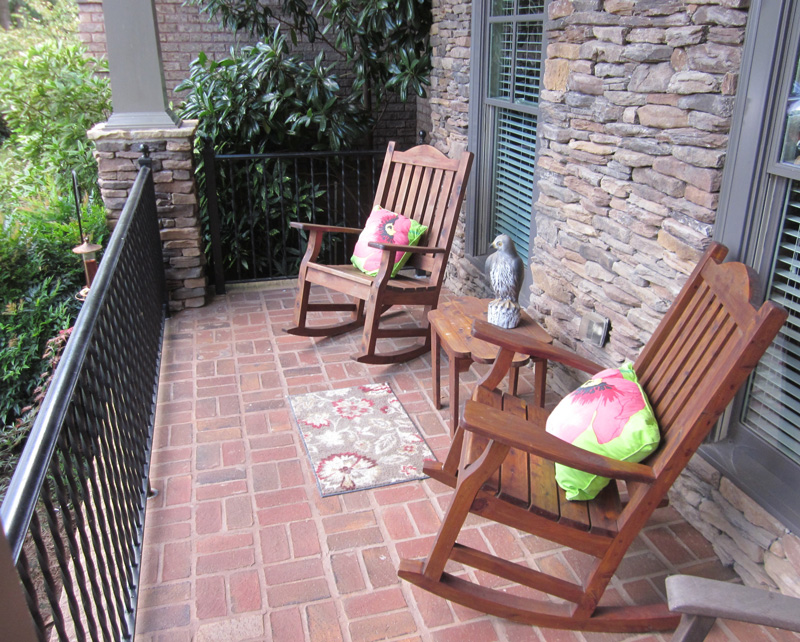
Although it’s unclear who actually invented the ever-popular chair (some folks mistakenly credit Benjamin Franklin), the earliest rockers—i.e. ordinary chairs with rockers attached–began creaking on American porches and in American gardens in the early 1700s. It’s generally believed that rocking cradles—a tool moms have used since ancient times—inspired the design of this iconic American invention.
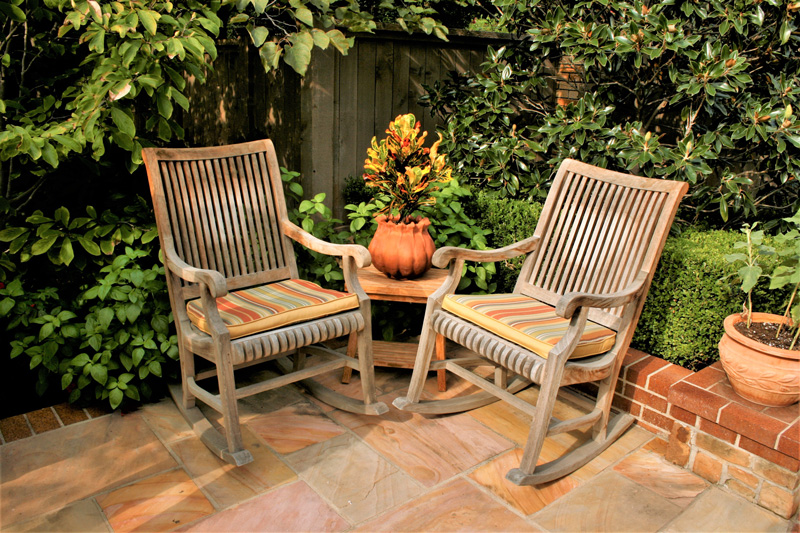
Perhaps it was that same gentle rocking motion that lulls babies to sleep or maybe it was the backward-tilting, user-friendly position that rockers assume when the occupant sits without rocking that accounts for rocking chairs’ rise to fame, but either way, it didn’t take long for rocking chairs to find their way from the garden to interior design.

By the mid-1700s, wicker rocking chairs—renowned for their craftsmanship and creative designs—were common on porches and in parlors. Soon after, classic wooden rockers with straight backs and curved seats had given way to variations: New England had become the rocking chair mecca: and the term “rocking chair” had earned a spot in the Oxford English Dictionary.
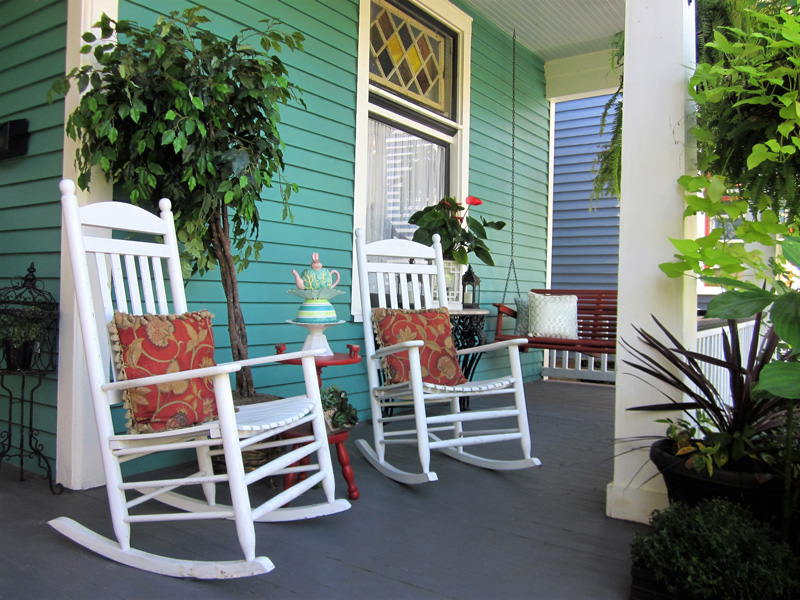
A home and garden staple by the early 1800s, American’s infatuation with their “must have” chairs prompted an English visitor to declare: “How this lazy and ungraceful indulgence ever became general, I cannot imagine, but the nation seems so wedded to it, that I see little chance of its being forsaken.”
When it comes to rocking chairs, truer words had never been spoken!
More years passed, rocking chairs’ popularity grew, and new designs evolved including America’s first steel rocking chair, introduced at the 1851 Crystal Palace Exhibition by Peter Cooper, American industrialist and inventor. Instead of rockers, the innovative Cooper chair relied on its curved frame to enable the occupant to rock. Bentwood rockers followed nine years later when German craftsman Michael Thonet, along with his five sons, created the first of the light-weight, gracefully-shaped rocking chairs.
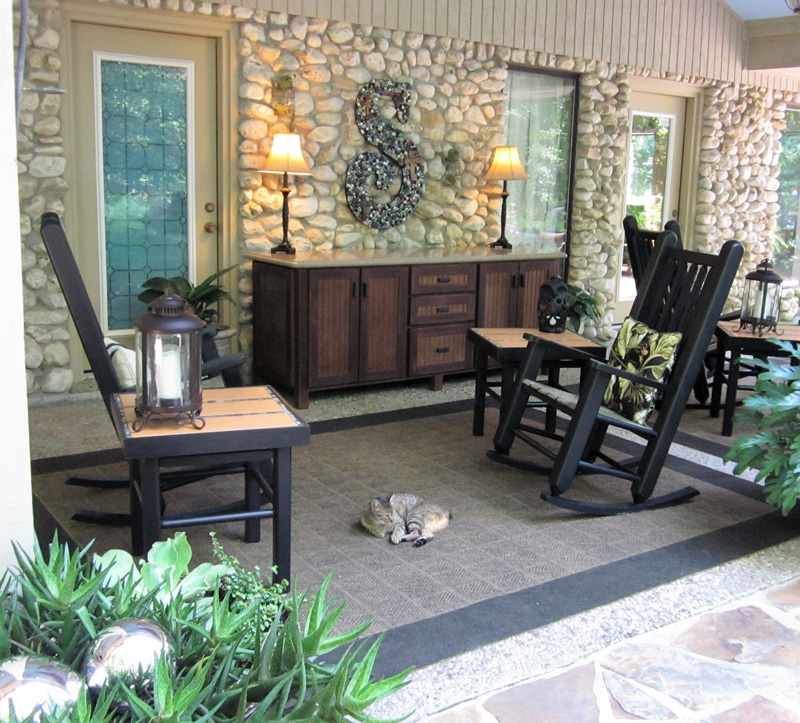
Other rocking chair variations include the classic Boston rocker, traditionally crafted of oak or pine, painted black, and generously decorated with fruit and flower motifs. The chair was once described by popular American artist Wallace Nutting as “the most popular chair ever made…”.
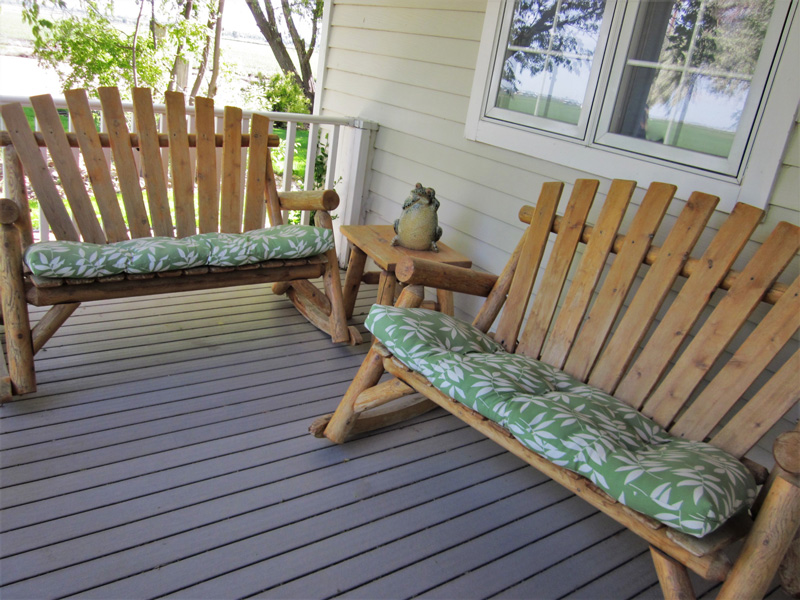
Today, molded plastic rockers in bright colors, portable folding rockers, rattan recliner rockers, Adirondack-style chairs mounted on rockers, and other contemporary versions of the ever-popular chair are as likely to be found on porches, on patios and in sunrooms as Bentwood rockers, Boston rockers, wicker rockers and other classic styles.
So take your pick, sit back, rock for a spell and watch the garden grow.
